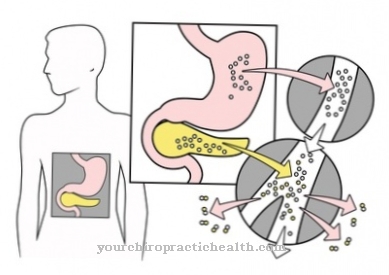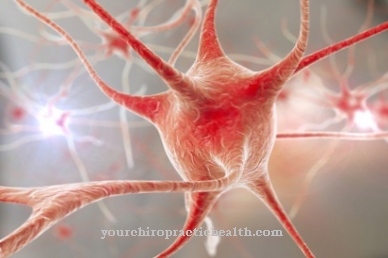Everyone knows the feeling of being in love. If this infatuation continues in a relationship, after a while it develops into a basic understanding of one's own feelings and those of the other. The infatuation develops into love.
What is love

The concept of love is not easy to define. Intimate feelings for another person, palpitations and the desire to be constantly with this person are understood as a feeling of love in everyday life. In the narrower sense, this is more of an infatuation.
Rather, love describes a strong affection and appreciation and has already left being in love behind. She is distinguished by the knowledge of this affection. After a long-term relationship, it may even be less possible to speak of a feeling than of this knowledge and the fact that it goes without saying.
In general, however, different people feel different feelings or have different understandings of what love is. It is therefore difficult to find universal descriptions.
The concept of love developed from Middle High German. The old word “liep”, which can be translated as “pleasant” or “valuable”, is the predecessor of our current word love. Looking back even further, the term comes from the Indo-European.
According to general understanding, love exceeds the pure benefits of an interpersonal relationship and is characterized by the affection and - in a relationship - by the physical desire of the other person. However, it does not necessarily have to be returned in order to persist. It can also exist when there is no (longer) desire for sexuality.
In addition to love between partners, there is also the concept of love, which is used in family ties or close friendship. More generally speaking, the expression stands for a strong focus on living beings, objects, ideas or activities. Metaphorically, love therefore also stands for enormous appreciation or even obsession.
Different forms of love are therefore self-love, family love, partner love, neighborly love and love of God as well as love for one's own hobby or an idea. So the concept of love is broad.
Function & task
In a stable partnership, love is an important starting point for a functioning relationship that can also produce offspring. From an evolutionary perspective, partner love has the function of ensuring reproduction.
It is similar with family love. Families are and were - in the early days even more so than today - important for the development, upbringing and protection of people. A very unique phenomenon in this sub-area is the parents' love for their children, which overshadows every other feeling and is characterized by strong instincts and need for protection. It thus fulfills the task of raising and protecting the child until it can stand on its own two feet - and beyond.
In general, love has the function of establishing and maintaining social contacts, also in the area of friendship. Because no one can be alone in the long run without suffering psychologically or even physically. Love helps to make contacts and to keep them.
However, love also has other functions. The strong affection towards an idea or a hobby gives people the opportunity to switch off in everyday life and to deal with things that are important to them. Anyone who engages in activities they like inevitably learns and gets better at what they do. Thus, this love gives the person the chance to develop skills and use them for himself or even the general public.
The love of God is defined by the belief in one or more gods who created the world in some way and are above it. This picture varies depending on the religion. However, the function remains similar: love for God is anchored in belief in God. Believers see God as the protector of the world and as an overfather who also protects it. The love of God thus has a close connection with family love.
Illnesses & ailments
However, love is not always returned. Unrequited love that causes heartache can be very painful. While some forms of love do not expect an immediate, direct response, unrequited love in a partnership, family or friendship is often associated with a lot of suffering.
In a broken relationship, in particular, lovesickness can reach fatal proportions. Depending on the original strength of the broken ligament, it can sometimes never weaken. Many of those affected complain that they have lost an important part of their lives. Nevertheless, the feeling usually subsides after a while and becomes more bearable.
The everyday expression "True love is not forgotten" is therefore no coincidence. People who have strongly shaped their own lives are suddenly hard to imagine without. It is especially difficult to get used to new things after a long-term relationship in which both partners have adjusted to each other. Often this is followed by a complete rethinking and the need for a new life plan, which can make lovesick even worse.
To overcome lovesickness, distraction is the way to go. People who stand by the person concerned and help them through this phase make this time easier.
Often, lovesickness also follows a phase of being in love that has not yet developed into love. If this is the case, there is usually no time spent together. This often makes it easier to get over the pain that has been triggered and to reorient yourself.



























